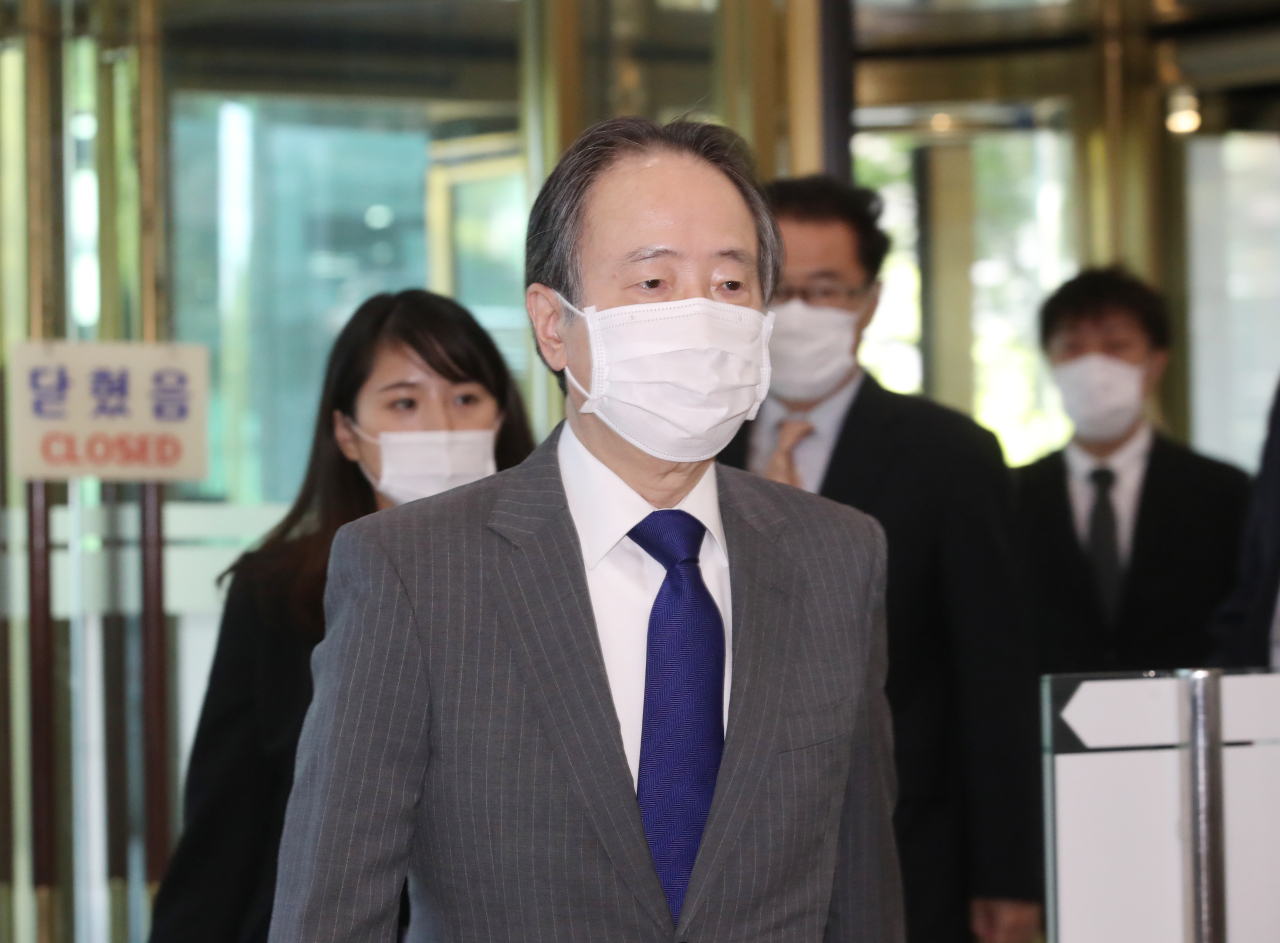S. Korea calls in Japanese ambassador, voices 'deep regrets' over Meiji site info center
By YonhapPublished : June 15, 2020 - 14:20

South Korea called in Japan's top envoy in Seoul and voiced "deep regrets" Monday after Tokyo failed to honor wartime forced labor victims at an information center on industrial revolution sites registered on UNESCO's World Heritage list.
Second Vice Foreign Minister Lee Tae-ho called in Japanese Ambassador Koji Tomita, hours after the Industrial Heritage Information Center in Tokyo opened to the public following a monthslong closure due to the new coronavirus.
Upon the 2015 World Heritage designation of 23 Meiji-era sites, Tokyo said it would establish the center to remember the victims based on its recognition of "Koreans and others who were brought against their will and forced to work under harsh conditions in the 1940s at some of the sites."
"It is deeply regrettable that this center runs counter to Japan's pledge and includes content that completely distorts historical facts," Kim In-chul, spokesman for the ministry, said in a commentary.
"Especially, South Korea cannot help but feel concern and disappointment, as we cannot find any effort to commemorate the victims in any exhibitions at the center, though the Japanese government pledged to establish the center as a measure to remember the victims," it added.
The ministry also urged Japan to thoroughly comply with a decision by the World Heritage Committee that recommended a measure to allow an understanding of the "full history of each site."
Among the 23 sites that were put on the UNESCO list in 2015 is the notorious Hashima Island, also known as the Battleship Island, where many Koreans were forced into labor -- a reason why South Korea had opposed the designation.
On Sunday, a pool of Tokyo-based correspondents toured the center.
The center focused on highlighting achievements of Japan's industrial revolution in the areas of iron, steel and coal mining, while giving short shrift to the suffering of the Korean victims during Japan's colonial rule from 1910-45.
The latest flare-up of tensions came as Seoul and Tokyo have already been mired in a protracted row over trade and wartime history. (Yonhap)








![[Graphic News] More Koreans say they plan long-distance trips this year](http://res.heraldm.com/phpwas/restmb_idxmake.php?idx=644&simg=/content/image/2024/04/17/20240417050828_0.gif&u=)
![[KH Explains] Hyundai's full hybrid edge to pay off amid slow transition to pure EVs](http://res.heraldm.com/phpwas/restmb_idxmake.php?idx=644&simg=/content/image/2024/04/18/20240418050645_0.jpg&u=20240419100350)






![[From the Scene] Monks, Buddhists hail return of remains of Buddhas](http://res.heraldm.com/phpwas/restmb_idxmake.php?idx=652&simg=/content/image/2024/04/19/20240419050617_0.jpg&u=20240419175937)

![[KH Explains] Hyundai's full hybrid edge to pay off amid slow transition to pure EVs](http://res.heraldm.com/phpwas/restmb_idxmake.php?idx=652&simg=/content/image/2024/04/18/20240418050645_0.jpg&u=20240419100350)

![[Today’s K-pop] Illit drops debut single remix](http://res.heraldm.com/phpwas/restmb_idxmake.php?idx=642&simg=/content/image/2024/04/19/20240419050612_0.jpg&u=)